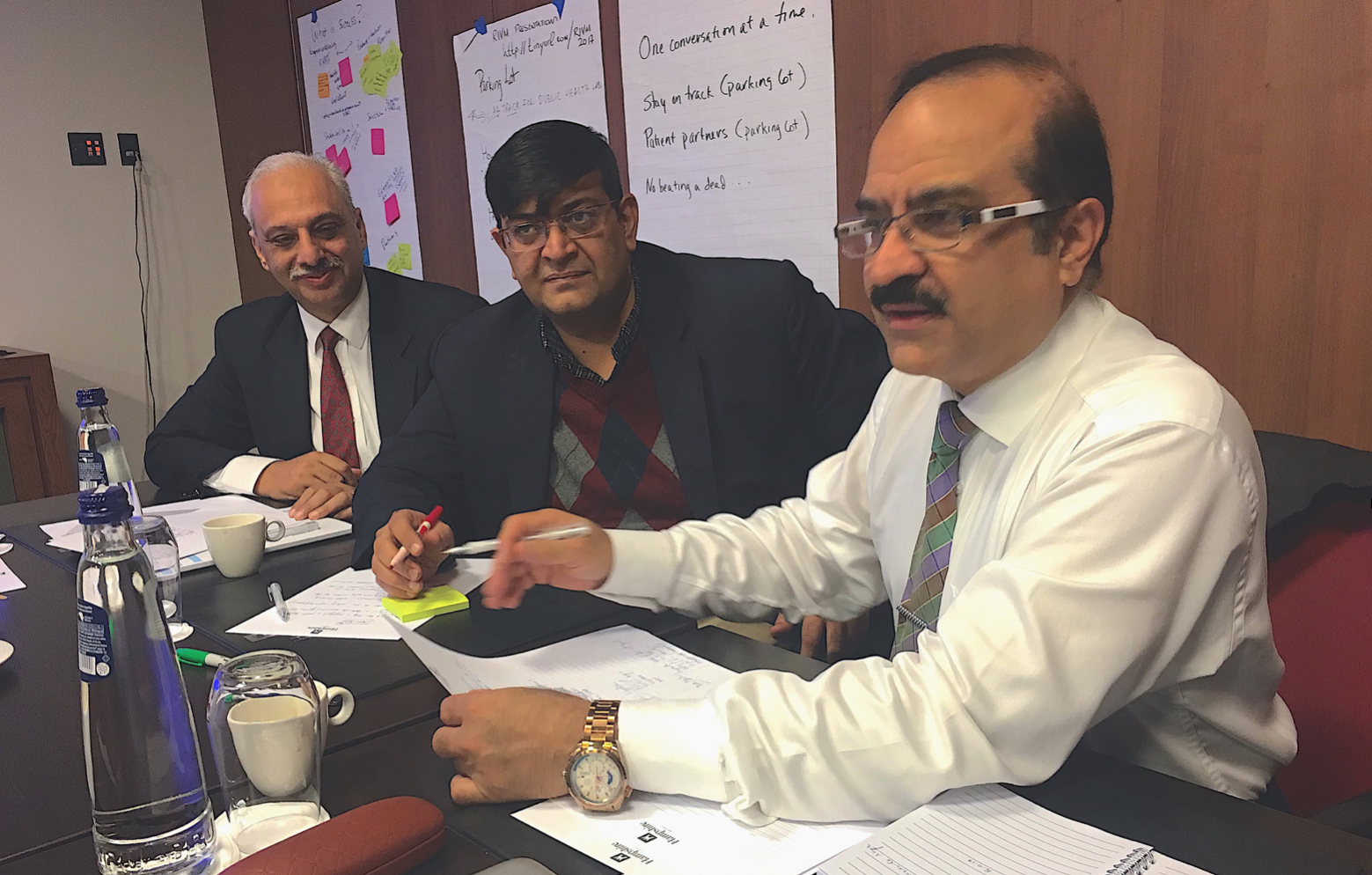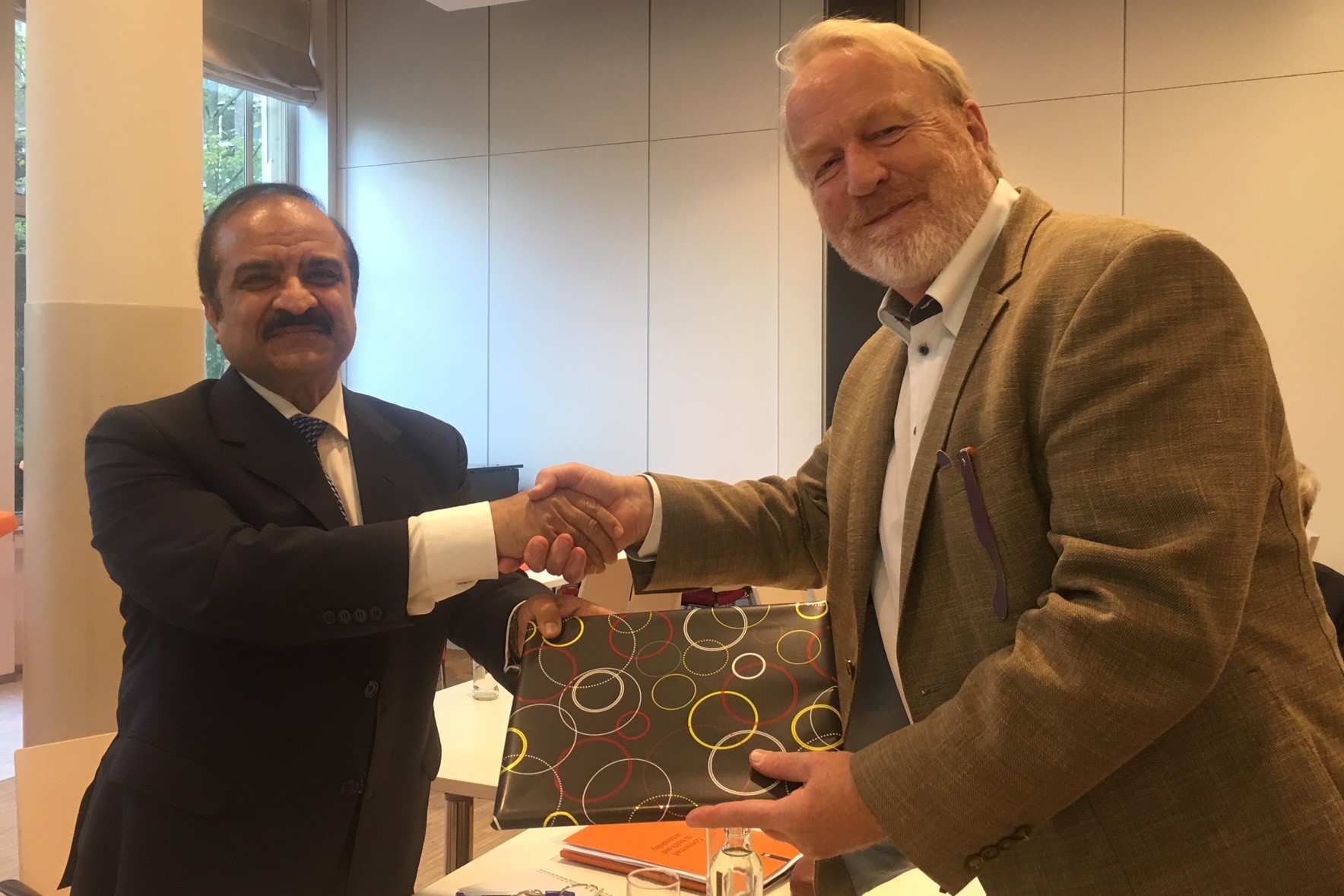Collaborating on a Vision for the Transformation of the National Institute of Health Islamabad
Representatives from the Pakistan National Institute of Health Islamabad met in the Netherlands with members of IANPHI, the U.S. Centers for Disease Control and Prevention, and Public Health England, to develop a vision and plan for the next steps for the transformation of NIH into Pakistan’s National Public Health Institute.

Key public health issues in Pakistan include workforce development, hepatitis surveillance, and polio eradication. An NPHI would strengthen the country's capacity and infrastructure. Pictured (l to r): Brigadier Dr. Aamer Ikram (Executive Director at Pakistan NIH); Dr. Muhammad Salman (Head of Virology Department at Pakistan NIH); and Dr. Faheem Tahir (Chief-Public Health Laboratory Division at Pakistan NIH).
Brigadier Dr. Aamer Ikram, the recently appointed executive director of the National Institute of Health Islamabad (NIH), is optimistic about the formation of a National Public Health Institute in Pakistan. With commitment from high levels in the Government of Pakistan, strong leadership, and support from partners, the transformation of NIH to a national public health institute (NPHI) may come to fruition within the next 12 months.
Representatives from the Pakistan NIH, the Ministry of National Health Services, Regulations and Coordination (MoNHSRC), and directors of the departments of health of two states met in the Netherlands with members of IANPHI, the U.S. Centers for Disease Control and Prevention (CDC), and Public Health England (PHE). The purpose of the meeting was to develop a vision and plan for the next steps for the transformation of NIH Islamabad into Pakistan’s NPHI.
The Netherlands' National Institute for Public Health and the Environment (RIVM) hosted the Pakistani delegation of public health leaders and stakeholders on the first day of the planning week. Founded over a century ago, RIVM has a rich history of excellence in public health. RIVM director and IANPHI vice president, Dr. André van der Zande, along with other RIVM staff members, presented on topics ranging from surveillance to legislation to environment and other key functions of an NPHI.

Pictured: Dr. Jaap van Dissel, RIVM's Director of the Center for Infectious Disease Control, presenting Dr. Ikram with a gift from RIVM.
RIVM appreciated the opportunity to dialogue with the group about their future institute. “These kinds of meetings are what IANPHI is all about: in-depth relationships between public health institutes. [It is] challenging, inspiring, helping each other on a mutual basis, solving common problems, and improving the health of our populations,” said Dr. van der Zande.
In the remaining four days, the Pakistani delegation and partners focused on what is needed for NIH to be a fully functional NPHI. The participants reviewed ongoing efforts and major gaps that could be addressed by an NPHI. They developed a vision and mission statement and a set of core components for the soon-to-be-established institute. Another product of the week’s hard work was a detailed action plan, with timeframes and specific activities.
The results of the planning have been submitted to the Pakistan MoNHSRC.